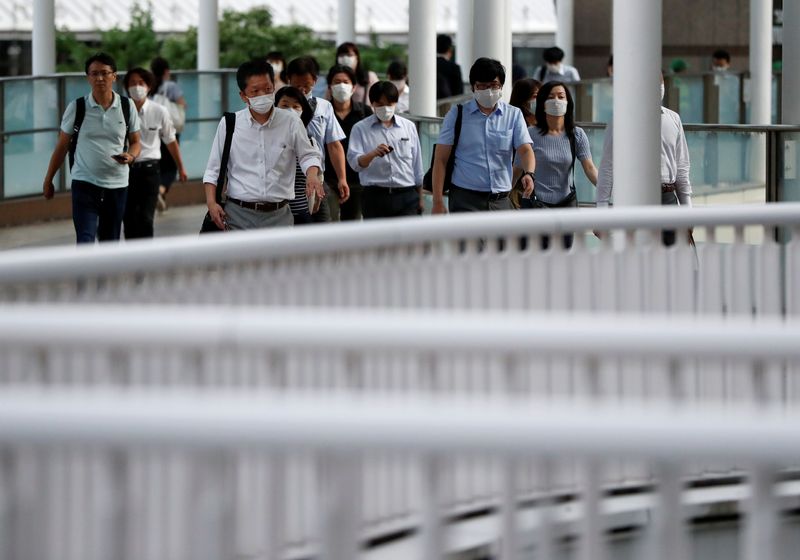By Tetsushi Kajimoto
TOKYO (Reuters) -Japan's top firms have offered pay rises of more than 2% at annual wage talks that wrapped up on Monday, marking an uptick from the previous year but still falling short of Prime Minister Fumio Kishida's request for a bigger increase to spur growth.
Instead, Japanese workers now look set for another lean year. Wages, which have barely budged relative to the cost of living since the 1990s, remain one of the most pressing problems for the world's third-largest economy, forcing households to save rather than spend.
Kishida, who has called for a wider distribution of wealth, pressed companies to boost pay by 3% or more at the annual "shunto" spring wage talks with unions. While the negotiations are less important than they were decades ago, they still set the tone for much of the economy.
The average increase for big companies won't be known for a few more days, but economists said it looked likely to be north of 2%, a bump from last year's eight-year low of 1.86%.
"Today's outcome was a little stronger than expected," said Hisashi Yamada, senior economist at Japan Research Institute. "Still, the pace of gains turned out to be moderate and it was not strong enough to boost the overall economy."
Yamada said he expects the overall increase to be 2-2.5%.
Conglomerates Hitachi (OTC:HTHIY) Ltd and Toshiba (OTC:TOSYY) Corp agreed with their unions to raise overall wages by 2.6% and 2.5%, respectively.
Automakers have already agreed to meet union demands in full, led by Toyota Motor (NYSE:TM) Corp and Honda Motor Co, although they did not disclose rises in percentage terms.
Any boost for workers and the economy is likely to be offset by recent increases in fuel and food prices, economists said.
RIPPLE EFFECT
"The question for us is how much of a ripple effect will this have on small- and medium-sized companies," said Tatsuya Sekiguchi, deputy executive committee chair at Tokyo Union, a labour group that represents workers who don't belong to bigger unions.
"If pay rises only at the big companies there isn't much meaning for us."
Kishida and Bank of Japan governor Haruhiko Kuroda have stressed the need for wage hikes in achieving the 2% inflation target. Still, the premier's target of 3% seemed "too ambitious", according to Masamichi Adachi, an economist at UBS Securities.
Companies reliant on domestic demand were particularly hurt by COVID-19 related measures, making it difficult for them to increase wages, Adachi said.
The Rengo trade union confederation went so far as to call for a 4% increase. But, as ever, Japanese firms remain cautious.
While corporate Japan is sitting on a record $2.8 trillion in cash and deposits, managers point to the Ukraine crisis, spiking oil prices, a weakening yen and the pandemic as reasons to save money.
"It is difficult to assume the shunto wage hikes will help boost private consumption," said Yoshiki Shinke, chief economist at Dai-ichi Life Research Institute.
Some companies are shifting away from uniform wage hikes towards a more varied approach on remuneration. More of them are adopting merit-based wages, rather than seniority-oriented pay, to lure skilled talent.
The move coincides with structural changes in the labour market. About 40% of workers consist of part-time staff and contract workers, double the proportion seen in 1990, many of whom do not belong to labour unions.

Japan's economic growth likely ground to a near halt this quarter as coronavirus curbs and supply disruptions threaten to derail the country's economic recovery, a recent Reuters poll of economists showed.[ECILT/JP]
($1 = 118.3000 yen)